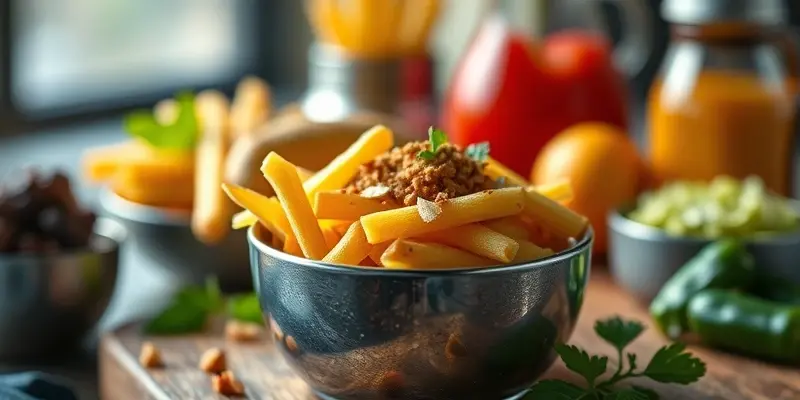Recovering well after your event isn’t just about rest—what you eat can make a world of difference. Whether you’re a gym newbie, weekend warrior, or seasoned competitor, the right foods speed muscle repair, reduce inflammation, and keep you on track for your next session. As a fitness and nutrition specialist at GymPulse, I’ll guide you through science-backed choices that help prevent injuries and cut down your recovery time.
Why Nutrition Is the Backbone of Recovery
Think of your body like a race car: after a high-speed lap, you wouldn’t refill the tank with low-grade fuel, right? Exercise leaves your muscles depleted, tissues in need of repair, and electrolyte levels out of balance. Skimping on nutrition could mean more soreness, slow recovery, or even injury.
Quality nutrition after activity:
- Repairs tiny muscle tears
- Refuels glycogen stores so you can train again sooner
- Reduces inflammation, helping prevent nagging aches from becoming real setbacks
Protein Power: Building Blocks for Recovery
Whey, Dairy, & Eggs: Fast-Acting and Complete
Protein is your muscle’s repair kit. Research shows that 20–40g of quality protein within two hours of exercise accelerates recovery. Fast-absorbing options like whey protein shakes, Greek yogurt, and low-fat milk are top picks—they provide essential amino acids your body uses to rebuild damaged fibers.
Eggs bring not just protein, but also nutrients like vitamin A and zinc to enhance healing. Don’t overlook a simple veggie omelet or a bowl of cottage cheese as easy, budget-friendly options.
Fish: Double Duty with Protein and Omega-3s
Salmon and mackerel add a recovery bonus: omega-3 fats that actively reduce inflammation and soreness—clinical studies show less muscle soreness for athletes who eat fish regularly.
Carbohydrates: Restore Your Energy Bank
After intense work, your glycogen stores (muscle energy) run low. For fast recovery, combine protein with carb-rich foods. Favorites include:
- Oatmeal: Offers complex carbs, fiber, plant-based protein, and inflammation-fighting antioxidants.
- Bananas: Their quick sugars restore energy, while potassium aids muscle contraction and hydration.
The ideal window? Have your carb-protein combo meal within 45 minutes of finishing exercise for best results.
Anti-Inflammatory Foods & Healthy Fats
Inflammation slows healing, so harness foods that help your body bounce back.
- Tart cherry juice and blueberries: Packed with polyphenols to fight exercise-induced muscle damage and speed up recovery.
- Spinach and leafy greens: Deliver vitamin C, magnesium, and plant compounds for overall tissue repair and immune support; learn more about the role of vitamin C immunity athletes in recovery.
- Nuts and seeds: Almonds, walnuts, chia, and flaxseed provide healthy fats and minerals that last long after you leave the gym.
Hydration and Electrolytes: More Than Just Water
Post-event, your body isn’t just thirsty—it’s craving lost electrolytes.
- Watermelon and bananas help restock potassium and magnesium.
- Low-fat milk or chocolate milk: Rehydrate while getting protein and carbs in one go. Studies back chocolate milk as a powerful sports recovery drink among athletes.
Practical tip: Drink steadily over the hours following your event. Don’t guzzle everything at once.
Practical Recovery Meals & Strategies
Try this balanced recovery smoothie:
- 1 cup Greek yogurt
- 1 banana
- ½ cup oats
- Handful spinach
- Splash of tart cherry juice
- Sprinkle of chia seeds
Or whip up a quick salmon and leafy green salad with a side of whole grain bread.
Tips:
- Focus on whole, minimally processed foods.
- Avoid high-sugar snacks—they can trigger inflammation.
- Use foam rollers or massage tools after eating to further ease muscle stiffness.
- Keep your motivation up—set mini-goals for the rehab period.
Nutrition Tips for Specific Injuries
- Muscle soreness/strains: Prioritize dairy, eggs, fish, and anti-inflammatory picks (cherries, greens).
- Ligament/tendon injuries: Add citrus (vitamin C), zinc-rich foods, and collagen sources (bone broth, eggs). For a comprehensive injury recovery checklist, check out our detailed guide.
- Endurance fatigue: Focus on complex carbs (oats, bananas) and fluid-electrolyte replenishment.
Final Thoughts: Make Recovery Part of Your Routine
Recovery nutrition doesn’t have to be a chore. A few simple, evidence-based tweaks can make every training session safer and more productive. Prioritize lean proteins, smart carbs, healthy fats, and antioxidant-packed produce. Want to keep progressing, hit your goals, and avoid setbacks? Start making your post-event plate as important as your pre-game warmup.
Ready to level up? Try a new recovery recipe, and let the GymPulse community know how it works for you! Stay strong—and recover even stronger.

